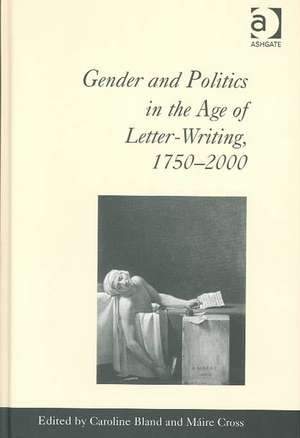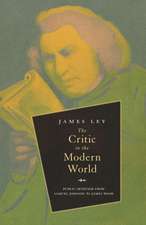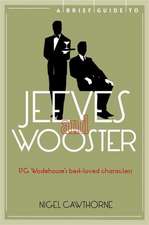Gender and Politics in the Age of Letter-Writing, 1750�2000
Autor Máire Cross Editat de Caroline Blanden Limba Engleză Hardback – 27 mai 2004
| Toate formatele și edițiile | Preț | Express |
|---|---|---|
| Paperback (1) | 261.95 lei 43-57 zile | |
| Taylor & Francis – 12 dec 2019 | 261.95 lei 43-57 zile | |
| Hardback (1) | 768.30 lei 43-57 zile | |
| Taylor & Francis – 27 mai 2004 | 768.30 lei 43-57 zile |
Preț: 768.30 lei
Preț vechi: 1029.81 lei
-25% Nou
Puncte Express: 1152
Preț estimativ în valută:
147.02€ • 153.88$ • 122.36£
147.02€ • 153.88$ • 122.36£
Carte tipărită la comandă
Livrare economică 31 martie-14 aprilie
Preluare comenzi: 021 569.72.76
Specificații
ISBN-13: 9780754638513
ISBN-10: 0754638510
Pagini: 292
Dimensiuni: 156 x 234 x 25 mm
Greutate: 0.68 kg
Ediția:1
Editura: Taylor & Francis
Colecția Routledge
Locul publicării:Oxford, United Kingdom
ISBN-10: 0754638510
Pagini: 292
Dimensiuni: 156 x 234 x 25 mm
Greutate: 0.68 kg
Ediția:1
Editura: Taylor & Francis
Colecția Routledge
Locul publicării:Oxford, United Kingdom
Cuprins
Contents: Part I 1750-1850: Epistolary connections in Enlightenment and Revolution: Gender politics: breathing new life into old letters, Máire Cross and Caroline Bland; 'The tribunal of the public': 18th-century letters and the politics of vindication, Clare Brant; Parenthood and gender roles as seen in Diderot's Correspondance, Ursula Yvonne Roberts; Deconstructing gender: Henriette's correspondence with Rousseau, Anne-Françoise Gilbert; Third person singular: the liberation of the Marquise de Sade, 1789-90, David McCallam; 'Remember the ladies': politics in the letters of Abigail Adams, Edith B.Gelles; 'Friends of liberty & virtue': women radicals and transatlantic correspondence, 1789-1848, Jane Rendall; The correspondence of a 'sister in humanity', Máire Cross. Part II 1850-2000: Correspondence in times of trial: Requests, complaints, demands. Preliminary thoughts on the petitioning letters of lower-class Austrian women, 1865-1918, Christa Hämmerle; A history in letters: the Allemane family's letters during and after the Paris Commune, 1871-80, Siân Reynolds; Across the divide: a correspondence during the Dreyfus Affair, David H. Walker; The gendered politics of correspondence: the curious case of Céline Renooz, 1840-1928, James Smith Allen; Reading between the lines. Letters to Eleanor Keeling Edwards, 1890-1900, Krista Cowman; More than just 'a sporting couple': the letters of a militant marriage, June Balshaw; Slinging the ink about: Ellen Terry and women's suffrage agitation, Katharine Cockin; 'In great haste': the personal and political in the letters of F.W. Stella Browne (1880-1955), feminist socialist sex radical, Lesley A. Hall; 'In case the worst comes to the worst': letters home from Berlin, 1942-45, Caroline Bland; Constructing identities and remembering Fascism: the published letters of Elisabeth Langgässer, Joanne Sayner; Corresponding in the sex and gender revolution: desire, education and feminist letters, 1970-200
Recenzii
'Collectively, these excellent essays show how letter writing has functioned historically as a form of gendered subjectivity, simultaneously providing political commentary, creating political subjects, and redrawing the boundaries between public and private life. A real tour de force that will be of great use to historians as well as to literary and cultural studies scholars.' Laura Levine Frader, Northeastern University and Harvard University, USA 'This volume aims to breathe 'new life into old letters', and succeeds by presenting us with a diverse and fascinating array of correspondence ranging from the middle of the eighteenth up to the late twentieth century... One of the most enjoyable aspects of this book lies in the way in which it demonstrates the range of letter writing available, and it allows the letters themselves to provide glimpses into the social, political and cultural worlds of the authors and their readers... This volume will be of immense value to those interested in literary, cultural and historical studies. The function and the variety of the epistolary form is considered in its historical context as to highlight the relationships between politics and private life, and also to describe the evolution of the epistolary form as a genre.' Women's History Magazine
Descriere
Letter writers have frequently articulated both the personal politics of the daily routine and the political views of individuals who witness or participate in dramatic events. In addition, letters can be an unusually revealing record of the relations between men and women. The three-dimensional relationship of politics, gender, and letters for the first time receives sustained attention in this volume, in which the gendered nature of political literacy is revealed over a 250-year period. Ranging wide in terms of subject matter and geography, the contributors examine correspondence from the famous and the unknown, the political prisoner and the political militant, while the writers are shown pondering familial concerns and providing political commentary on the effects of war or revolution on everyday life. Among the impressive group of international scholars are Jim Allen, Clare Brant, Edith Gelles, Jane Rendall, and Siân Reynolds.












